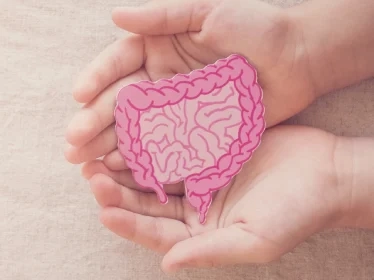World Heart Day - Can Stress Lead to Heart Problems?
Did you know that cardiovascular disease is the leading cause of death worldwide with stress being the most common factor in recent years?
This World Heart Day, join Senior Consultant Interventional Cardiologist, Dr Saurabh Rastogi of Nobel Heart Centre and Consultant Psychiatrist, Dr Zheng Zhimin of Nobel Psychological Wellness Centre (both members of Healthway Medical) as they discuss the correlation between the heart and the mind in this video.
Transcript
0:05 | In Singapore, heart-related diseases or strokes accounted for almost 1/3 of all deaths in 2021. But is stress a factor that can increase the risk of getting heart disease? Today, we have Dr Saurabh Rastogi and Dr Zheng Zhimin with us to share more about the correlation between the heart and the mind. |
0:23 | Hello everyone! I am Dr Saurabh Rastogi. I am a Consultant Interventional Cardiologist, currently practicing at Nobel Heart Centre, located at Gleneagles Hospital. |
0:32 | Hi everyone! I am Dr Zheng Zhimin. I am a Consultant Psychiatrist, currently practicing at Nobel Psychological Wellness Centre |
What are the possible risk factors of heart disease and the most common one you’ve seen these days?
0:40 | To break it down, the non-modifiable one is change which we cannot change. But the ones which are modifiable and we can work on includes diabetes, high blood pressure, high cholesterol, overweight, ack of physical activity, smoking, healthy diet and above all, stress. |
What are the different types of stress and general common triggers of stress in today’s time?
1:08 | Stress comes in different forms and large categorised in physical, psychological, and social stress. Physical stress refers to physical illnesses, physical trauma such as injury. Psychological stress refers to difficult emotional states such as anxiety, fear, anger and sadness. Social stress refers to problems in your everyday life such as interpersonal relationship difficulties, financial woes, problems at work or at home. |
How does stress increase risk of heart disease?
1:42 | There are many ways stress can increase the risk of heart disease. Just imagine yourself as the person who is stressed out, and what you will end up doing when you are severely stressed. Apart from that, stress actually triggers part of your brain to increase sympathetic drive, which increases heart rate and blood pressure. |
2:02 | There is a clear body and mind link, and especially in psychiatry we often see patients come in with anxiety and low mood. Sometimes this happens even after getting their diagnosis of having a heart condition, because being diagnosed with a condition causes stress, such as fear of disability, sometimes even death as well as financial stress. It’s pretty much a chicken or egg situation whereby stress can lead to heart conditions and heart conditions can in turn lead to more stress. So essentially it is important to manage stress overall. |
Are there ways that people can adopt to help manage their stress?
2:37 | First of all, introduce changes to your lifestyle. But these changes have to be small and incremental, so that it is easy to employ in your daily life. Such changes could be being more self-aware of your emotional health as well as physical health. When you are more self-aware, when you know your own limits and boundaries, then it will be easier to do what is required to take care of yourself better. |
3:04 | Through COVID-19 another big factor that has just come up is the importance of being social beings. The social isolation has taken a big trigger on stress which are very small but have very profound effect on coping with stress. |
3:21 | Everything in moderation. Anything too excessive is usually not good for you and will cause stress to you emotionally and physically. |
3:28 | The first step is to acknowledge stress. If you are having stress, do not ignore it. Discuss it, break it down and find ways on how you can deal with it because if you can’t, it will lead to many more medical problems. |
3:42 | Stress is important, it helps us to grow and helps us to be more productive. But when there is too much stress, that can become a problem for your health. So, it is important to be mindful and self-aware, take care of yourself on a daily basis, and it will help you in a long way. |




